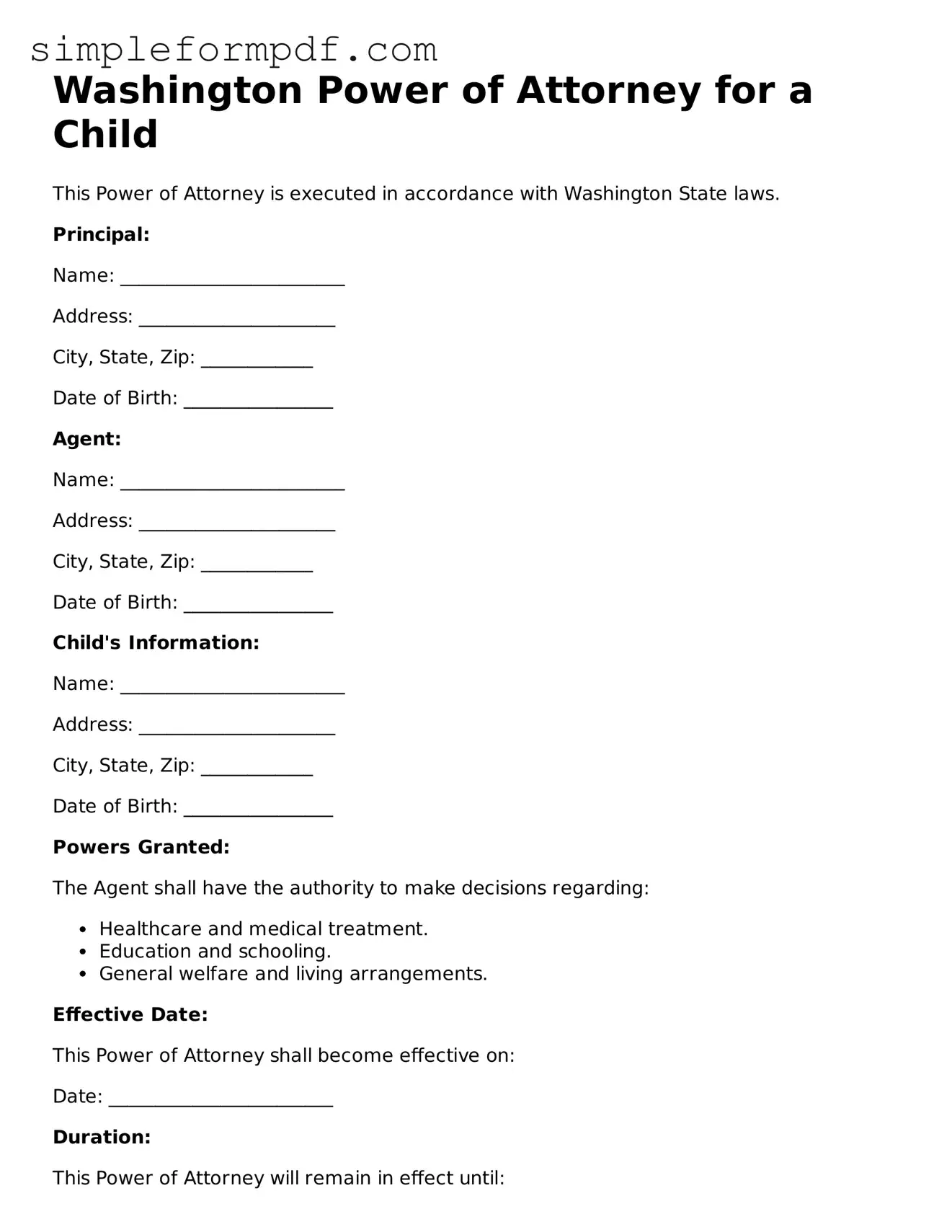Free Power of Attorney for a Child Form for the State of Washington
The Washington Power of Attorney for a Child form is a legal document that allows a parent or guardian to designate another adult to make decisions on behalf of their child. This arrangement can be essential in various situations, such as when parents are traveling or unable to care for their child temporarily. Understanding this form can help ensure that your child's needs are met even when you're not available, so consider filling it out by clicking the button below.
Launch Editor

Free Power of Attorney for a Child Form for the State of Washington
Launch Editor
Need instant form completion?
Finish Power of Attorney for a Child online in just a few minutes.
Launch Editor
or
Download PDF
